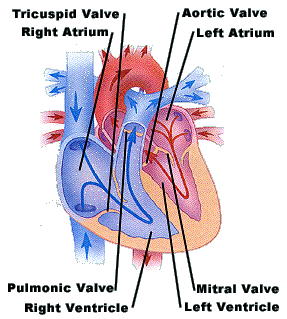Westford Pet Care Articles
Infectious Endocarditis
Infectious endocarditis is an infection of the inside lining of the heart and / or the lining of the heart valves. The mitral valve (heart valve between the left auricle and left ventricle) and aortic valve (heart valve between the left ventricle and the aorta) are the most common sites of cardiac infections in dogs and cats.
Infection of the endocardium is generally the result of an infection in another part of the body. The germs travel through the bloodstream and eventually colonize the endocardium (the internal lining of the heart and heart valves).

Germs gain access to the circulation from abscess, external lesions, tooth infections, kidney infections, infectious arthritis and osteomyelitis (bone infections). Many other types of infection can also lead to infectious endocarditis. A depressed immune system or treatment with anticancer medication can predispose an animal to infectious endocarditis.
Extensive diagnostic tests are usually required for diagnosing and treating infectious endocarditis. Blood cultures are necessary for identifying the infectious agent.
The prognosis for infectious endocarditis is extremely guarded. Secondary complications often occur. Even with aggressive treatment, infectious endocarditis is often fatal.
[ Search Articles ] [ Article Index ] [ Previous Page ]
